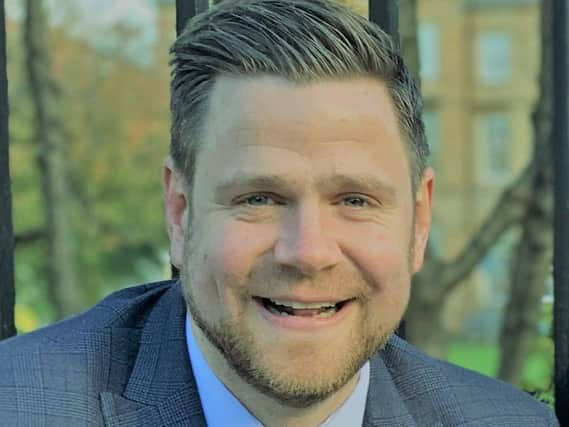Comment: Why it’s wise to prep for a run-in with the media


A bad interview will never leave you or your organisation. Just ask Jeff Fairburn. What should have been a straightforward broadcast interview for the then-chief executive of Persimmon Homes turned into a viral sensation for all the wrong reasons. His nightmare interview with BBC Look North took a turn for the worse when asked whether he had any regrets about taking his £75 million bonus payout.
It was a tough, but entirely predictable question – a response should have been prepared. A clip of the aborted interview was shared on Twitter and racked up more than one million views. Cringeworthy right enough and, more crucially, with a significant knock-on impact on Persimmon’s reputation. All avoidable, with the right training and preparation.
Advertisement
Hide AdAdvertisement
Hide AdThe most important point to remember is this – a media interview is not a normal conversation, even if you like and respect the interviewer. It’s a skill you need to learn, just like any other part of business. The journalist wants information to tell an interesting story and you want to provide key messages about your business activities that present your company in a positive light – or fair light if you are dealing with a breaking issue. The right balance will be somewhere in the middle: you get a fair hearing and the journalist gets a decent piece, too.
Your focus is on getting your points across regardless of the question being asked. That’s not to say you don’t answer the question – you should – but answer it quickly and move onto your key points.
So, who needs media training? Anyone who’s engaging with the media, whether face to face, by email, or by phone. Depending on the size and structure of your company, you may have a single spokesperson, or several individuals who can represent the company on different projects or talking points – all should have some media training before they do so. Even experienced hands need a refresher now and then. Social media has changed how we engage, and the lines are more blurred than they used to be.
A carefully crafted media training session conducted by an experienced facilitator will provide the necessary tools to navigate through the potential hiccups a media interview can present across print, broadcast or social channels.
The biggest fear we hear from clients is: “What happens if the interview isn’t going the way I want it to?” Knowing how to take back control is essential, and there are techniques that can be learned to address this.
Most media training sessions include a camera or a smartphone to record practice interviews – even if you don’t anticipate any broadcast interviews soon. Playing back this footage, listening to your tone of voice and observing your interview style is crucial to help shape the session, and you’ll get more out of it.
By your second or third run-through, you should expect tougher questions – the ones you hope will not come up in real life. The reality is that any media interview is going to contain at least one tricky question that you don’t want to answer or didn’t anticipate being asked. Good journalists are trained to probe, especially if they see any sign of discomfort.
A good trainer will help you navigate these situations with more confidence so you can get back to shaping the story you want to tell. Don’t be tempted to use in-house colleagues – company culture kicks in and you will find yourself using shorthand and jargon, both of which can be confusing to external audiences.
Advertisement
Hide AdAdvertisement
Hide AdIt only takes one bad interview for media training to become your biggest priority, so you would be wise to invest in bringing in experts.
- Matthew Williams, PR and social media manager at Perceptive Communicators.